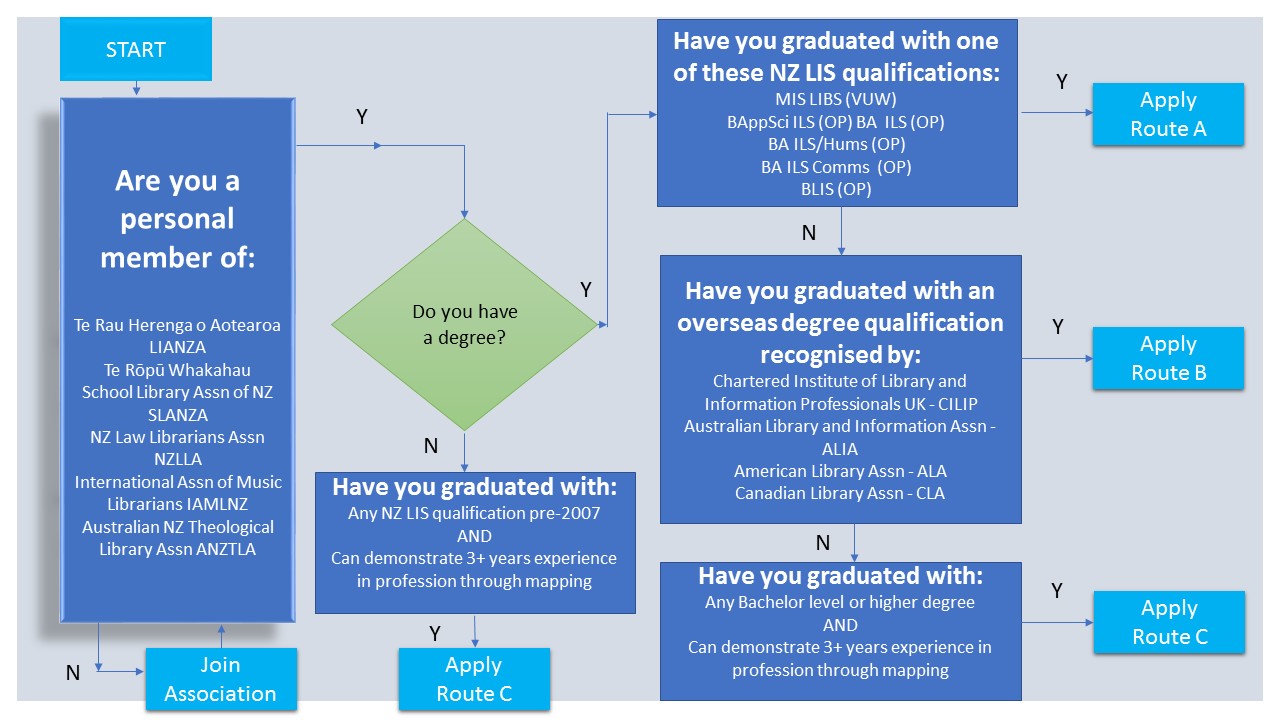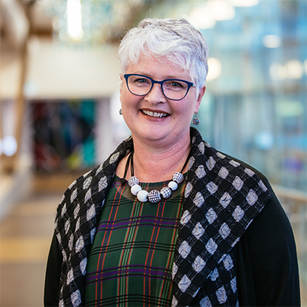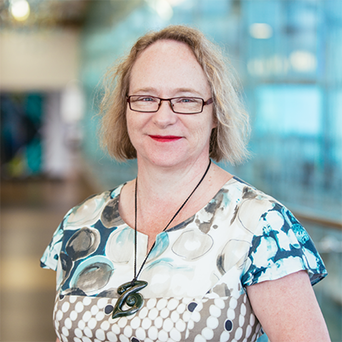LIANZA PROFESSIONAL REGISTRATION – CHANGES TO ROUTE C
LIANZA is opening up the ways in which members can become professionally registered. In this special feature we give some background to LIANZA Professional Registration (RLIANZA) and explain the pathways you can now take to become registered. LIANZA Council recently approved changes to Route C entry after recommendations from the LIANZA Professional Registration Board, which come into effect from July 1.
WHY PROF-REG?
Professional Registration is an important milestone for any librarian and information professional. It establishes your proven knowledge, understanding and competence. In particular, registration shows your peers and employers that you have demonstrated a commitment to professional standards, and to developing and enhancing competence.
WHY PROF-REG?
Professional Registration is an important milestone for any librarian and information professional. It establishes your proven knowledge, understanding and competence. In particular, registration shows your peers and employers that you have demonstrated a commitment to professional standards, and to developing and enhancing competence.
|
RLIANZA BENEFITS:
|
APPLICATION PATHWAYS
|
|
AUCKLAND LIBRARIES – A CASE STUDY
At Auckland Libraries, RLIANZA is desirable for librarian roles – there is an expectation that people in these roles will have the qualifications to allow them to apply for RLIANZA. The next level up, people in Senior Librarian roles, must have RLIANZA or be actively working towards registration. Many of the library managers also hold RLIANZA. Twenty of Auckland Libraries’ Maori librarians are working towards a the Poutuarongo Puna Maumahara Bachelor of Information Management degree from Te Wānanga o Raukawa, which will enable them to gain LIANZA Professional Registration. This qualification is aimed to develop bilingual and bicultural managers of Māori information resources in organisations. Across the whole of Auckland Libraries that adds up to more than 120 people with RLIANZA or working towards registration. |
We asked Allan House, Capability Design Manager from Auckland Libraries, why the organisation places such a value on RLIANZA. Allan says, ‘RLIANZA is the strongest indication we have to demonstrate professionalism in libraries – it shows a commitment to librarianship, especially since there are several pathways to registration available. Registration demonstrates the value of particular skill sets, such as categorising data, understanding copyright and intellectual property. As Auckland Libraries fall under Auckland City Council’s jurisdiction, RLIANZA also signals the importance and value of libraries and librarians to the wider community. Going forward there will be an even stronger expectation for RLIANZA. Auckland Libraries will be actively working to support employees to meet that expectation’.
Allan finds the RLIANZA Bodies of Knowledge (BoKs) very relevant to professional development and appraisal, BoKs are handy in that they identify specific areas that people can develop and measurable targets to work towards. RLIANZA also gives Auckland Libraries guidance around what professional support and learning staff need.
Allan finds the RLIANZA Bodies of Knowledge (BoKs) very relevant to professional development and appraisal, BoKs are handy in that they identify specific areas that people can develop and measurable targets to work towards. RLIANZA also gives Auckland Libraries guidance around what professional support and learning staff need.
|
Mirla Edmundson, General Manager Libraries and Information, explains how LIANZA Professional Registration contributes to the professionalism of Auckland Libraries’ workforce:
‘At Auckland Libraries we take professional registration very seriously for our senior and specialist professional roles. It not only provides career progression due to the higher pay grades that we can apply to the senior roles, it also gives us confidence that the people in those senior roles are upto-date reflective professionals who have taken care of their own professional development. I am particularly delighted to see the changes to professional registration through the revised Route C. We have a range of key roles that require qualifications outside of library and information studies and this allows those people to apply the knowledge they have acquired in libraries to work toward registration in a way that is inclusive and acknowledging of the benefits they bring to our sector. Thank you LIANZA for refreshing this process and keeping it real.’ |
|
LIANZA asked Louise LaHatte, Head of Research, Heritage & Central Library, Records & Archives, about the historical reasoning behind Auckland Libraries making RLIANZA a requirement for senior librarians. Louise replied: ‘After the amalgamation of seven library networks in Auckland in 2010, Auckland Council went through an exercise to review and align library roles and pay bands. The Strategic Pay system used by many councils has different pathways – and all librarians were either in a customer service pathway or a leadership pathway. This limited career and pay progression for senior people who did not want a people leader role. Communicating LIANZA’s internationally recognised Professional Registration scheme and the qualifications that librarians undertake convinced Council that qualified librarian roles should be in the Technical/Professional pathway alongside other professions. This opened up senior librarian roles where we require registration such as Senior Librarian Children and Youth, Senior Librarian Research and Senior Librarian Content Development to higher pay bands, and enabled us to offer better career progression. |
|
CATH SHEARD, CHAIR OF THE PROFESSIONAL REGISTRATION BOARD, TALKS US THROUGH THE CHANGES TO RLIANZA ROUTE C That libraries are changing is no great surprise; libraries have always changed to meet the times, it’s nothing new. As the services libraries offer change, and the public we serve changes, staffing needs also change. Once, a library qualification was the thing you needed. Library qualifications remain vitally important to maintaining the strength and integrity of our profession, but increasingly there are roles within libraries that need different skills and qualifications. However, there are now specialist roles that require media and education skills, to name just two. |
The big question has been ‘How do we maintain the integrity of the scheme while providing a path that encompasses new skills?’ It’s a challenge we have been grappling with for a couple of years and we’re delighted to have found a way forward that everyone is comfortable with. We believe the changes we have made to LIANZA Professional Registration will allow more people to demonstrate their professionalism and ongoing professional development, while maintaining the stringent requirements needed to keep RLIANZA truly meaningful.
Under the old rules Route C applied to New Zealand library and information qualifications that pre-dated 2007 with five or more years’ experience OR a New Zealand library and information-related qualification at a minimum of BA level and included Education and Maori Information Management, with no specified years of experience. In both instances, the applicant needed to map their experience and knowledge to the BoKs. Under the new Code of Practice, any New Zealand qualification at Bachelor level or higher will be accepted for entry via Route C; the applicant still needs to map their experience to the BoKs. However, the applicant must also have three years’ experience in a library or information organisation, Why has this requirement for work experience been added? To ensure that people who gain LIANZA Professional Registration have had relevant experience and are able to reflect on their professional experiences.
What does this mean in practice? People who have been working in libraries for three or more years, and who have a qualification at Bachelor level or above, can now apply for LIANZA Professional Registration. For people with less than three years’ experience, it means they have a professional goal to work towards.
The LIANZA Professional Registration Board looks forward to seeing a flurry of applications come through when the new Code of Practice comes into effect on 1 July, so now’s the time to start your BoK mapping. As always, if you have any questions contact LIANZA office or email me at [email protected]. nz
Under the old rules Route C applied to New Zealand library and information qualifications that pre-dated 2007 with five or more years’ experience OR a New Zealand library and information-related qualification at a minimum of BA level and included Education and Maori Information Management, with no specified years of experience. In both instances, the applicant needed to map their experience and knowledge to the BoKs. Under the new Code of Practice, any New Zealand qualification at Bachelor level or higher will be accepted for entry via Route C; the applicant still needs to map their experience to the BoKs. However, the applicant must also have three years’ experience in a library or information organisation, Why has this requirement for work experience been added? To ensure that people who gain LIANZA Professional Registration have had relevant experience and are able to reflect on their professional experiences.
What does this mean in practice? People who have been working in libraries for three or more years, and who have a qualification at Bachelor level or above, can now apply for LIANZA Professional Registration. For people with less than three years’ experience, it means they have a professional goal to work towards.
The LIANZA Professional Registration Board looks forward to seeing a flurry of applications come through when the new Code of Practice comes into effect on 1 July, so now’s the time to start your BoK mapping. As always, if you have any questions contact LIANZA office or email me at [email protected]. nz





